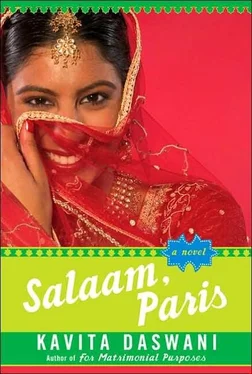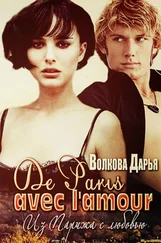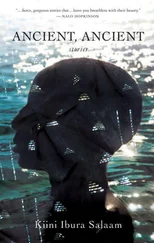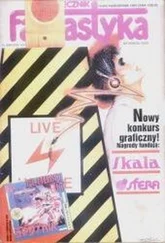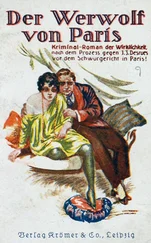“Yes, but how did you feel?” asked Teresa. “Were you nervous?”
“To begin with, yes, of course. But after a few seconds-maybe less-it became easier.”
In truth, the previous night had been perhaps the most exciting of my life. Walking down the runway had been the shortest sixty seconds of my life, and also the longest. When it was beginning, I couldn’t wait for it to end, but once I had taken my final twirl, mimicking the girls who had gone before me, I wished I could do it again. It had been a moment of pure frivolity and spontaneity, two things I had never experienced before. I longed to call my grandfather and tell him about my night. But instead I told three girls who were still strangers to me.
Bruno, the designer, sent me flowers at work the next day. I could barely read the scrawl on the tiny card that accompanied it, and wouldn’t have been able to understand it anyway, so Mathias deciphered and translated for me.
“ ‘With all my heart I thank you for your bravery,’ ” Mathias recited. I thought Bruno’s words were dramatic, as if I had rescued someone from a burning building. “ ‘Your willingness to model my creations saved my show. If there is anything I may ever do for you, you have only to ask.’ ”
“Sweet,” said Mathias, looking up. “He sounds most grateful. I am certain that Bruno will give you some free clothes whenever you’d like.”
I thought back to the pink hot pants he’d put me in and confessed I could do without.
With the tidy little bonus I had received from Bruno, I decided to spend a beautiful Sunday on my own, exploring the city again. I set off from the apartment just after breakfast, carrying with me a packed lunch and a copy of Elle that I had borrowed from Juliette, who tended to pilfer magazines from the fashion house she worked for.
I took the Metro to Place de la Concorde and made my way into the Jardin des Tuileries, which I had first visited with Shazia during my first few weeks here. I found a stone bench that was empty, set down my things, and took in the glorious morning. Joggers sprinted by, and mothers wheeled their babies in strollers. There was a clear crispness in the air, as if the world had overnight been cleansed of all its troubles and was suddenly sparkling new again. I took a deep breath, wanting to feel as invigorated as the atmosphere. I had nowhere to be and nothing to do and realized as I sat there that the heaviness and loneliness I had been feeling since Shazia had left was slowly starting to lift. Not a day passed when I didn’t think of Nana and my mother or when I wouldn’t yearn for a platter of bhel puri from a Mahim street vendor or hope to walk into a community gathering and hear the tinkling of glass bangles and the familiar rustle of silk saris.
But I was beginning to feel happy and at home. I took out my purse and counted, again, the two hundred euros that Bruno had paid me, shoving it into my palm as if it were a tip. I knew the other models had received far more, but they were professionals, and I was simply a cashier who happened to be tall and slim and there.
After an hour of sitting on the bench, during which I had barely flicked through the pages of the magazine I had brought along, I decided to start walking again. I emerged through the gates of the gardens and, not quite sure where I was going next, crossed the street. I was standing in front of the imposing Hotel InterContinental, a palace of a place that I had walked past many times but had never had the temerity to enter. A pair of uniformed doormen stood on each side of the huge arched entrance, themselves almost dwarfed by ornate golden lamps. Each person passing through the doors seemed more beautiful and glamorous than the last. I glanced down at the brown paper bag I had in my right hand, inside it my modest lunch of a cheese and tomato sandwich and an apple, and tossed it into a nearby trash can.
I took another deep breath, adjusted my dupatta, smoothed down my hair, and walked in.

The crystal chandeliers overhead glinted in the sunlight, the marble floors and pillars polished to perfection. The lobby seemed unusually busy for a Sunday morning, and then I realized why: a board announcing that day’s events and functions listed a fashion show that, according to my watch, had just ended.
I found an empty armchair in the lobby and sunk into it. I looked completely out of place, swaddled in voluminous clothes where everyone else looked defined, silhouetted against a beautiful backdrop. Crowds of people began to emerge from one of the rooms in the back, carrying programs and chattering excitedly. There were hundreds of them, far more than had been at Bruno’s a few nights before, and not a server in a French maid’s uniform to be found among them. I wished, for a moment, to have seen what they had just seen.
A waiter approached me and asked if I would like to order anything. I looked at the menu he showed me and realized that if I wanted the money to last me the rest of the month, I could maybe afford an espresso.
“Bon,” he said with a quick nod of his head.
The lobby went quickly quiet, with only small pockets of people clustered here and there, discussing the show. Two American girls were talking about a lilac chiffon gown as if it were the Shroud of Turin, marveling at its perfection.
Then I saw the models leaving, all of them lithe and willowy, their hair in neat chignons, subdued makeup on their pretty faces, looking every inch like I always imagined models would, one of them a dazzling redhead I even recognized from the cover of the magazine I was carrying. This must have been quite a show.
I took careful, slow sips of my espresso, wanting to savor every drop, aware that this was the only indulgence I was going to allow myself there. As the crowds in the lobby thinned out, I noticed that I was being stared at by a balding, dark-skinned man who was seated on a couch a few feet away. He didn’t smile, had no expression on his face, but his eyes were glued to me as if he were blind and didn’t know where he was looking. I had grown accustomed to being noticed in Paris, attributing it mostly to my clumsy Indian attire, although Mathias frequently told me that my looks had something to do with it. But usually someone would gawk and then look away again as soon as I noticed. This man just kept on staring.
Suddenly feeling uncomfortable, I decided it was time to leave. I paid the bill, gathered up my things, and walked quickly to the front of the hotel, trying to decide which direction to turn in. I made a right and headed back toward the Tuileries, thinking that if I was ambitious and energetic enough, I might continue on in that direction to the Left Bank and perhaps even return home on foot.
After five minutes of walking, something told me to turn around. The man from the hotel was behind me, his pace quickening to catch up to mine, leading me to speed up. He was taller and thinner than he looked back at the hotel, and he was far too well-dressed to be trailing a girl across Paris like some ruffian at night.
“Stop!” he said. “Please! I mean no harm. Please.”
We were on the rue de Rivoli, surrounded by tourists, so against my better judgment I came to a standstill and turned to face him as he caught up with me.
“Thank you,” he said, catching his breath. He spoke in accented English, but I knew it wasn’t French. Somehow, I found that comforting-that he was an alien here, just like me. “You walk fast,” he gasped.
“I thought you were chasing me. What do you want?”
He reached into the breast pocket of his jacket, pulled out a name card, and handed it to me: DIMITRI MAROUNIS, VICE PRESIDENT, it said, and beneath it the name of a company with three different addresses.
Читать дальше
